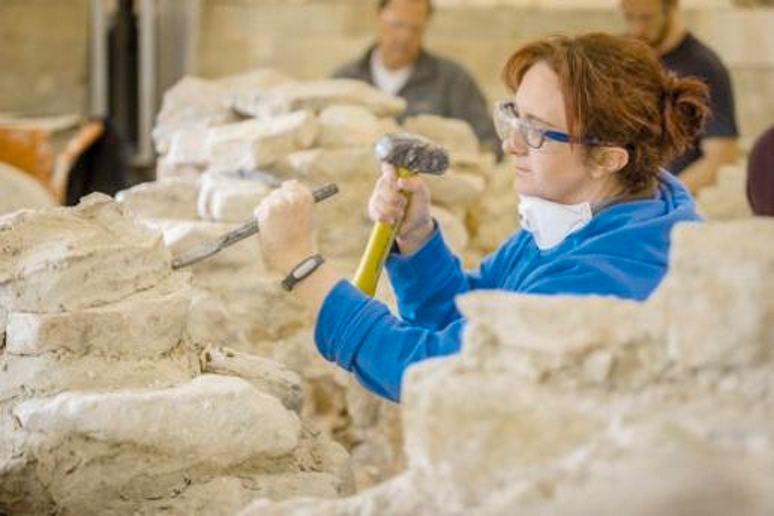West Dean College, with its highly respected building conservation training, has received a £47,564 grant from Historic England’s Covid-19 Emergency Response Fund to develop online building conservation training for the heritage sector.
The College says the move will make building conservation knowledge and training more accessible and democratic, widening participation and providing the knowledge and skills necessary to conserve the nation's historic environment.
West Dean College of Arts & Conservation has been running internationally respected building conservation masterclasses in West Sussex in conjunction with Historic England (and its predecessor English Heritage) since 1999.
Students come from across the UK and further afield for two- and three-day courses taught by experts from across the sector. A particular feature is the College’s unique ruinette that gives students a chance for practical, hands-on experience of what they learn. It is not intended that the online part of the course will replace this, but rather it will supplement it.
Core subject areas include brick, flint, timber, stonemasonry, plasters, renders, metals, concrete and structural repairs. The courses can also be taken as part of a Professional Development Diploma. Students include architects, surveyors, engineers, stonemasons, carpenters, bricklayers, conservators and graduates.
The Historic England-funded pilot will see 10 tutors undergo training to deliver selected course elements (or blocks of training) by e-learning with new online training material.
The first three courses using the blended approach will be developed over the coming months. The team will assess which elements work well as online delivery to complement the practice-based teaching the College is known for.
For students, the blended learning approach delivers flexibility and will reduce the cost and time away from businesses of undertaking professional development. In addition to the online courses, new material will be developed and made available freely on an open access basis to support the building conservation sector worldwide.
Catherine Woolfitt, Subject Leader of Historic Building Conservation at West Dean College, says: "Covid-19 represents an existential threat to England's historic environment and to traditional teaching and learning. This joint initiative mitigates the risks we face by a paradigmatic shift from face-to-face teaching of building conservation skills to a flexible blended learning approach.
"This not only accommodates social distancing, but is an exciting step that will strengthen learning in the sector and support more students at all stages of their careers while sharing knowledge more widely."
Francine Norris, who is Director of Education at West Dean, adds: "We are really proud of the quality of the building conservation programme at West Dean and the tutors who teach on it, who are recognised sector experts. This grant will enable us to make sure the specialist knowledge and skills that have characterised the programme for the past 20 years can survive this current crisis and be passed on to future generations.”
Historic England’s £1.8million Covid-19 Emergency Response Fund was created to help heritage organisations that have been affected by the impact of the coronavirus. West Dean College is one of 70 organisations to have been awarded a grant through this fund.
Emily Gee, London & the South East Regional Director of Historic England, says: "We are glad to be able to support the West Dean College pilot and deliver online teaching, and through it the wider heritage sector by nurturing specialist skills that are in very short supply.
"Without adapting to new models and continuing essential training in conservation principles we would struggle to preserve some of our most important historic buildings in the region.”

